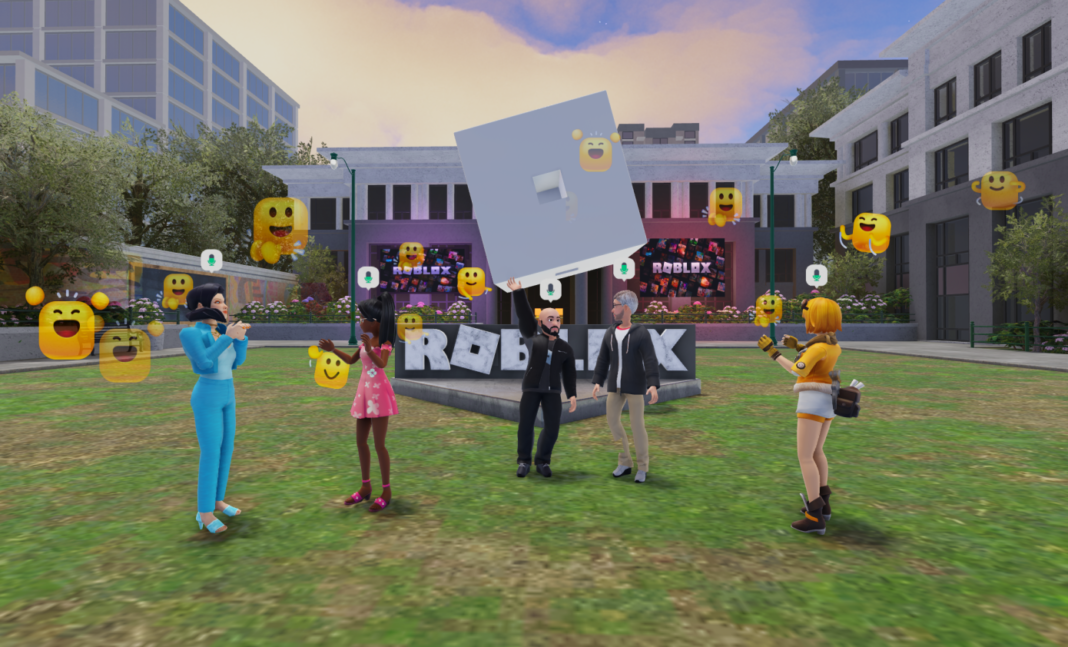As its users grow up, Roblox is rethinking how players communicate
As one of the frontrunners in the race to build the metaverse, Roblox is thinking ahead to what virtual worlds really need. And while the platform has had no shortage of growth on its current path — as of July, it boasted 47 million daily active users — it’s looking to chart a course toward deeper, richer virtual experiences that will keep people coming back for years to come.
To that end, Roblox is taking careful but decisive steps toward weaving voice chat into the platform’s core experience. The first move: inviting a group of trusted developers to explore how they can integrate proximity-based audio into the wildly popular experiences that beat at the heart of the platform — from chill, vaporwavey vibe games to pulling off kickflips in a Vans-sponsored skate park.
With spatial audio, users will be able to speak with other people nearby through live voice chat. Roblox sees its new voice product as a natural extension of the way that text chat works now, but instead of text bubbles that pop up over an avatar’s head, visible to anybody around them, players will be able to talk naturally to the other people they bump into.
Say you’re hanging out in a virtual skatepark in Roblox with spatial audio enabled: skaters in the half pipe with you would sound loud and clear, just like they would in real life. But you wouldn’t be able to hear someone walking around on the sidewalk across the street, since they’re too far away. To have a private conversation with a nearby friend, you might peel off and walk toward a store down the block.
“As we think about the future of communication in the metaverse, we think that it needs to be very natural and feel very similar to the way we communicate in the real world,” Roblox Chief Product Officer Manuel Bronstein told TechCrunch in an interview. “But it also can transcend, some of the limitations that physics and space create in the real world.”
Bronstein joined the company in March, leaving Google to help realize Roblox’s particular vision for the metaverse. Prior to hopping over to Roblox, Bronstein worked on product teams at Zynga, Xbox and YouTube — three very different companies that are probably equal parts relevant to his current work.
“If you think about the metaverse as the next incarnation of where you know I could go shopping or I could go to a concert, I could go to school, I think that you need to be relevant to everybody in society and you need to both build the content, the rules, the features that support all of those behaviors,” Bronstein said. “And part of bringing voice to the platform is to ensure that our older audiences have a natural way to communicate.”
Voice chat is very much on the way to Roblox, but that doesn’t mean it will appear overnight — and that’s by design. The company is inviting an initial group of 5,000 developers, all 13 and older, to try out the new spatial voice chat capabilities in a custom-built Roblox community space.
“We’ve put a bunch of neat features in there and places for them to chat and hang out and they’re going to be able to learn from the code that we wrote for that community space… So a few weeks later or a month later they can put that into their experiences and turn it on,” Bronstein said.
Bronstein emphasizes that Roblox will take this process slowly, building new moderation and safety tools in parallel as it goes. The voice rollout will go slowly, starting with the chosen circle of developers and gradually expanding out from there as the company feels confident that it can create a safe enough environment with its moderation tools.
“I think we want to take it slowly and we want to learn as we go through it,” Bronstein said. “We may start, as I mentioned, with the developers. It is likely that right after that, we may go to an audience that is 13+ and park there for a while until we understand exactly if all the pieces are falling into place before deciding if we ever open it to a younger audience.”



